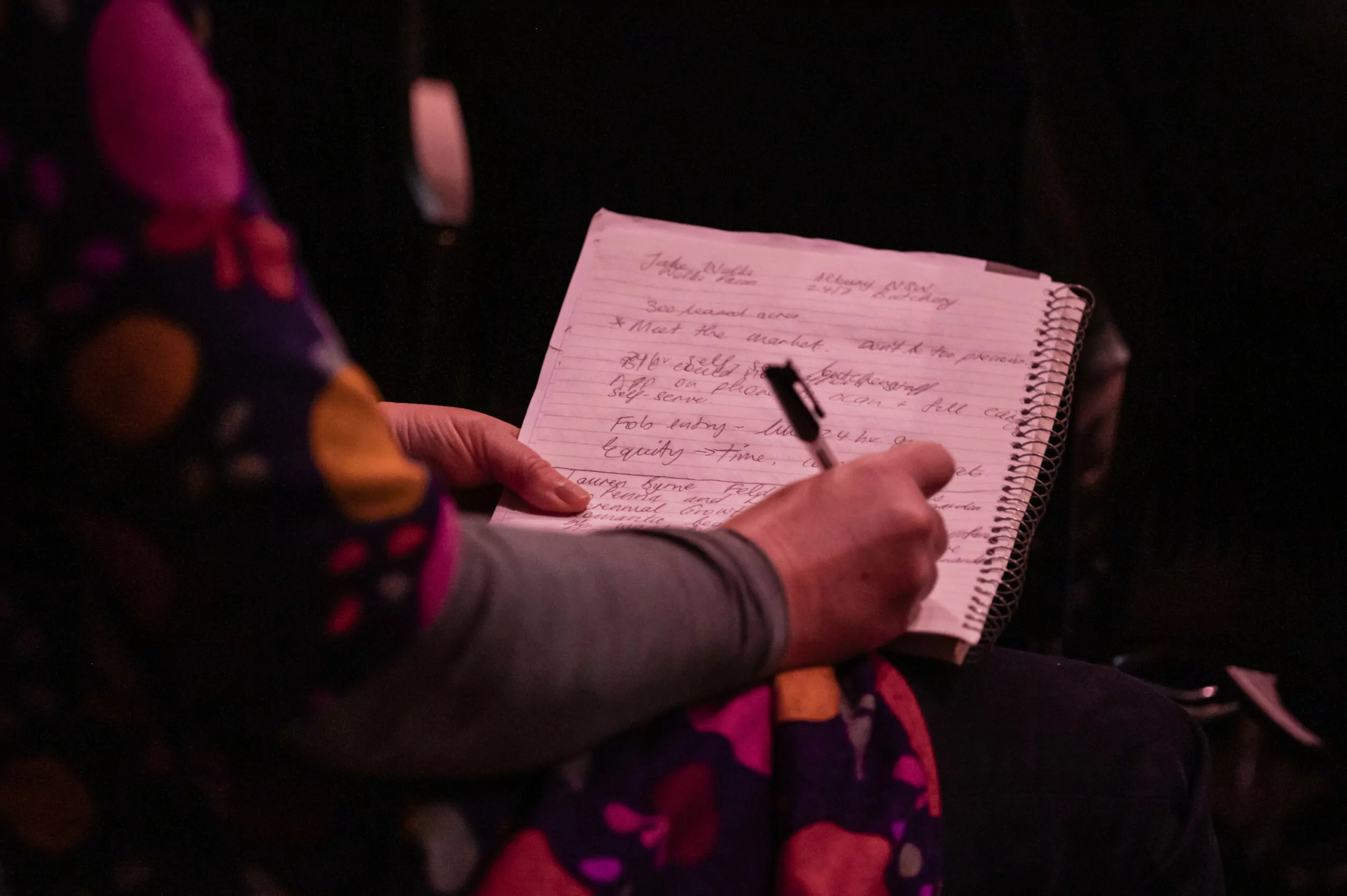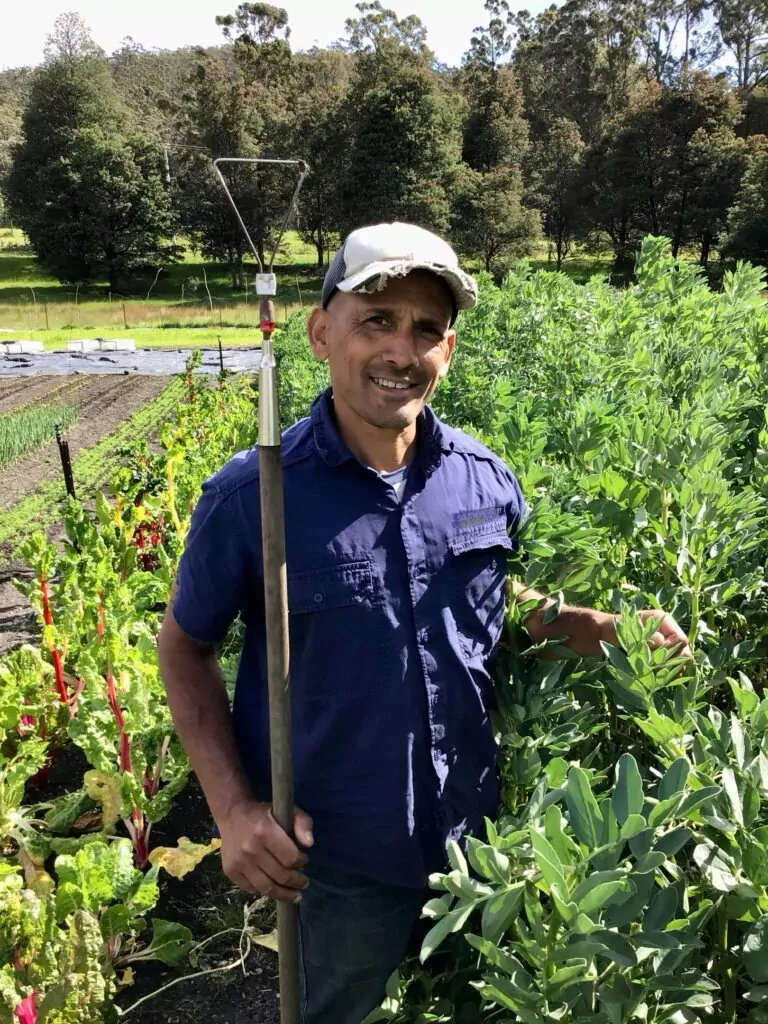
stan robert
Stan is a small-scale vegetable grower at Fat Carrot Farm in Oyster Cove, Tasmania. With his partner Briony, they grow with deep care for all the biological systems on their property and admiration for the long line of people who bred and grew the vegetables before them. They supply restaurants and a CSA subscription. Prior to becoming a farmer, Stan led the microbial ecology research group at CSIRO in Hobart. Prior to that, in the early 90’s, he was a cook and was most influenced by a stint at the Uraidla Aristologist, one of the first farm-to-table restaurants in Australia.
Stan will be joined by Fraser Bayley from Old Mill Road, for an informal chat between two experienced market gardeners. Casual, candid, and full of well-earned wisdom, like pulling up a stool in the packing shed for a yarn, Stan and Fraser will present ‘If We Were Starting Again’ where they reflect on their journeys, the wins, the faceplants, and everything in between. With a spirit of generosity and honesty, they’ll talk through what they’d do differently if they were starting again today, and what they think the next generation of growers needs to know to build successful market gardening enterprises.
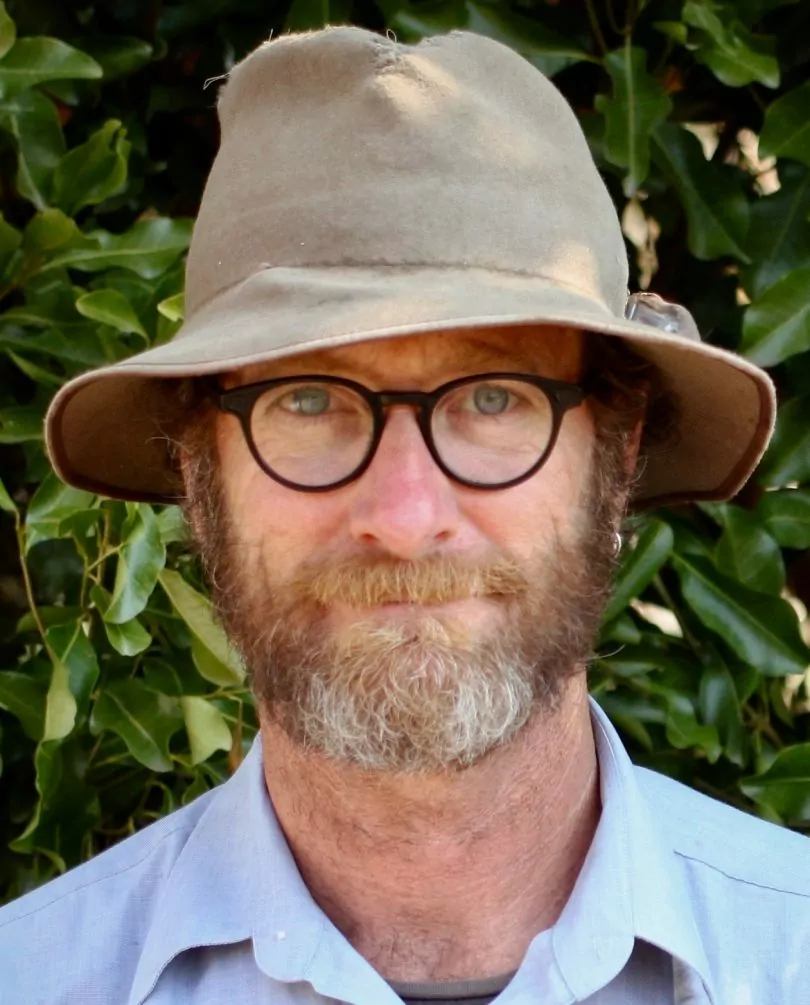
Fraser Bayley
Fraser Bayley runs a small mixed vegetable farming business with his partner Kirsti Wilkinson and their family at Old Mill Road on Walbunga and Brinja Yuin country, on the South Coast of NSW. The pair are driven by a desire to run a farm on ecological principles connected to both the local environment and the local community. For their most recent season of veg boxes, resilience in supply and excellent flavours came through collaboration nearby BooBook Hill Farm and with regular and special contributions by colleagues around Moruya.
Fraser will be joined by Stan Robert from Fat Carrot Farm, for an informal chat between two experienced market gardeners. Casual, candid, and full of well-earned wisdom, like pulling up a stool in the packing shed for a yarn, Stan and Fraser will present ‘If We Were Starting Again’ where they reflect on their journeys, the wins, the faceplants, and everything in between. With a spirit of generosity and honesty, they’ll talk through what they’d do differently if they were starting again today, and what they think the next generation of growers needs to know to build successful market gardening enterprises.
Fraser will also be sitting on the panel that looks at The Ultimate Juggle – Farming and Parenting.
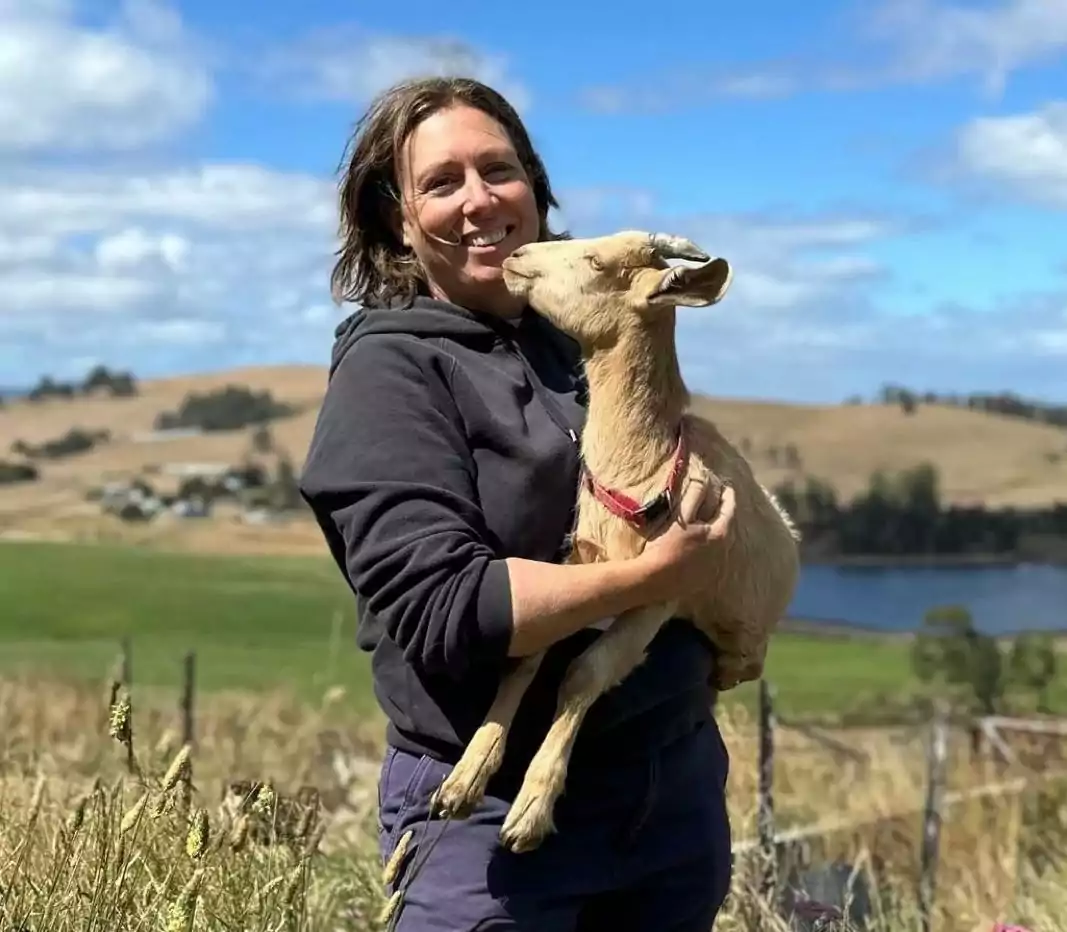
Kate Field
Kate is half of Leap Farm/Tongola Cheese, which is located in Copping. She and her husband, Iain, have a small herd of cattle for beef, and a herd of Swiss Toggenburg dairy goats that they milk and then manufacture cheese. She also manufactures Leapful Skin products from the whey left over from cheesemaking and is President of the Bream Creek Farmers Market. In her spare time, Kate works as an Emergency Specialist at the Royal Hobart Hospital, and also oversees the training program in Australia and Aotearoa New Zealand for doctors becoming Emergency Specialists. Kate is passionate about small producers’ role in food production and food security, in addition to how farmers can be part of the climate solution utilising agroecological principles.
Kate will be drawing back the curtain on her favourite subject – The Mayhem of Goat Kidding Season. A behind-the-scenes look at the bustling chaos of kidding season on a small goat dairy farm, this presentation will look at the operational challenges of managing a goat farm in October, such as the handling and care for newborn kids, early health checks, vaccinations, and feeding, and ensuring the health and wellbeing of mother goats during and after kidding.

Jason Andrew smith
Jason is a Palawa man, traditional fire practitioner and descendant of Fanny Cochrane Smith. He is a land-healer and has been putting the right fires back on Country for 13 years. He runs a not-for-profit in southern Tasmania called Patrula Nayri, meaning ‘fire good’; teaching all comers the techniques of burning Country the old people’s way. He is adept at reading landscapes and a strong believer that traditional methods can increase the health of Country and those that inhabit it.
Jason will be joined on stage by Jen Robinson, as he answers ‘What Can I Do Today To Heal Country’. Where he will provide information on daily practices for healing and caring for the land and how indigenous knowledge and land stewardship can lead to changes in landscape function.
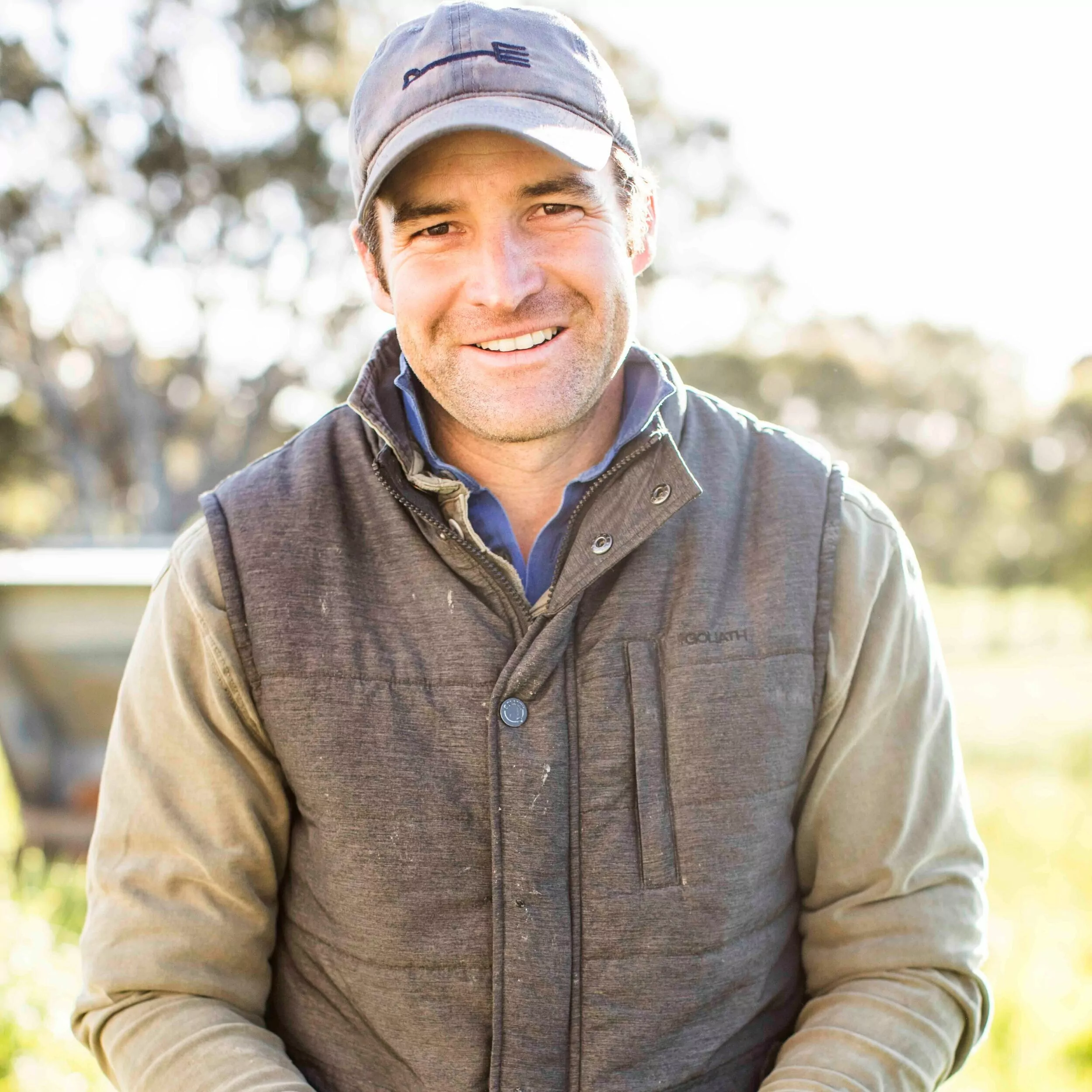
Hayden Findlay
Hayden Findlay runs Ravens Creek Farm, in Moriac, about 20 minutes outside of Geelong. Having had a passion for farming and working on the land for as long as he could remember, in 2009 he decided to pursue a dream of making a living off his small family farm. He knew that in order to make the farm a viable business he had to think outside the square, using alternative, regenerative farming techniques in order to restore the land as well as earn a profit from it. Having converted a humble beef farm providing minimal income, into a bio-diverse, naturally regenerating environment with a wide variety of stacked enterprises, he now focuses on two main enterprises, pastured eggs and free range pork.
Hayden will be joined by his first ever farm employee, Ollie Benson, to have a look back at their adventures farming together. The theme will be diversification, examining the pros and cons of stacked enterprises and why, ultimately, Hayden chose to strip everything back and focus on two enterprises.
Hayden will also be involved in the Letting Go To Grow panel discussion.
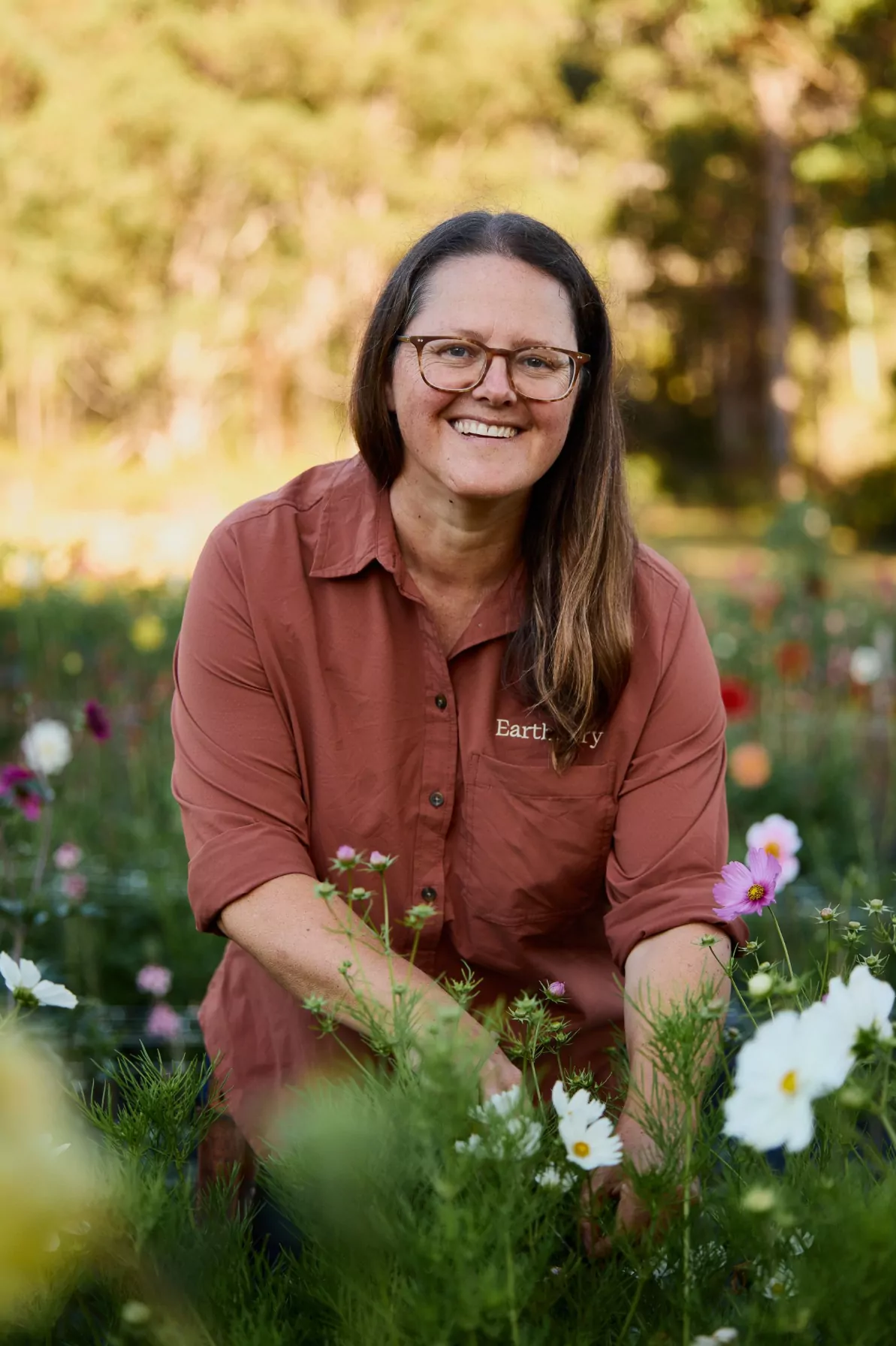
Emma Horswill
Emma Horswill is a farmer-florist and co-owner of Earthenry Farm at Lower Snug in the D’Entrecastreaux Channel. Growing over 100 different varieties of field grown flowers across their 9 acre landscaped gardens and farm, their main offering is a ‘pick your own’ flowers experience. They also offer floral and farming workshops, dahlia tuber sales and cut flower specialty plants, bulbs and seeds. In the ‘off-season’ they run a community volunteer farming program called ‘Garden + Gossip. They also offer free farm tours to visiting school groups and free nature craft sessions during school holidays.
Emma’s background includes an early career in video editing and TV production for ABC-TV, where she started in the Gardening Australia production unit. After this she completed a Bachelor of Fine Arts leading to a short practice in large scale public art and studied Horticulture with the Royal Tasmanian Botanic Gardens. Most recently Emma was developing science based resources and outreach for the ARC Centre of Excellence for Plant Success at the University of Tasmania before she left to work full time on the farm at the start of this year. Supported by her hard-working husband Greg, they also employ 3 part-time staff to assist with day to day running of the farm, nursery and seed production.
The development and growth of Earthenry Flower Farm over the last 6 years into a popular agritourism destination has provided the perfect outlet for Emma’s art, science and horticulture passions, as well as her desire to provide educational and creative experiences to uplift and inspire a love of flowers, nature and growing things.
Emma will be taking us through Earthenry Farm’s hugely successful volunteer program, Garden & Gossip, highlighting the importance of building community and education is to her business. The program provides opportunities for learning and making new friends, but also has benefits for the farm itself, all of which Emma will demonstrate on stage.
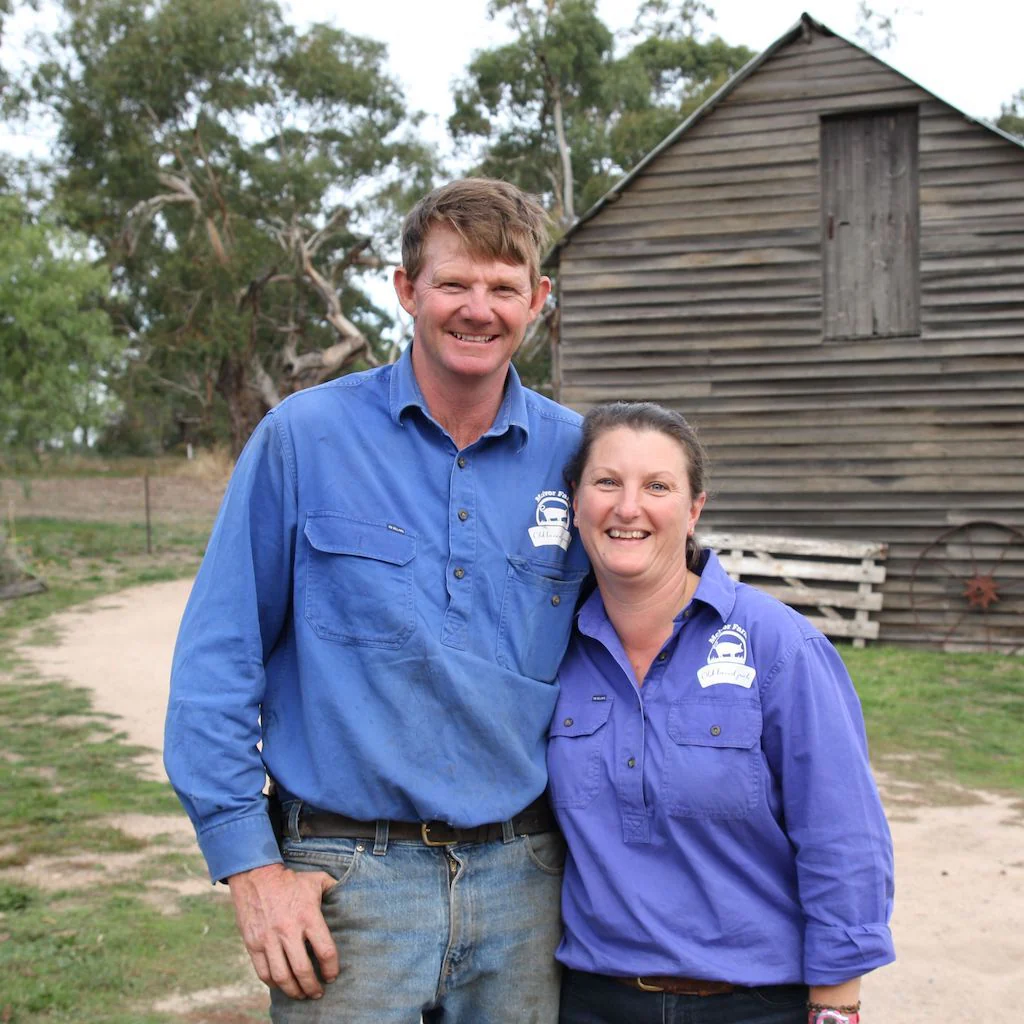
Belinda Hagen
Belinda and her husband Jason are third generation farmers working the land with their two children and small team on the family farm in Tooborac Victoria, about 1 hour north of Melbourne. They started their lifelong farming careers in industrial agriculture – high input, high output with the focus on profit at all costs. After a family health issue and passing of a close family member in a short amount of time they began to question many aspects of lifestyle, food, and industrialised systems. It was to be a pivotal point in their lives and became a catalyst for lifestyle, values and career changes. This is where the story of McIvor Farm Foods began.
They now call themselves ‘soil farmers’ who manage to run pigs, cattle and sheep across their property with a focus on regenerating the land to create a healthier earth, happier animals and better choices for people.
In a recorded interview, Belinda spoke to Ollie about the full seasonal cycle of producing pastured pork with Christmas in mind. From Farrow to Festive: The Christmas Ham Countdown looks at what it takes to get a ham on the table at Christmas time. From breeding timelines to liaising with processors, curing to pre-order customers, this session looks at what it takes to make holiday hams happen.
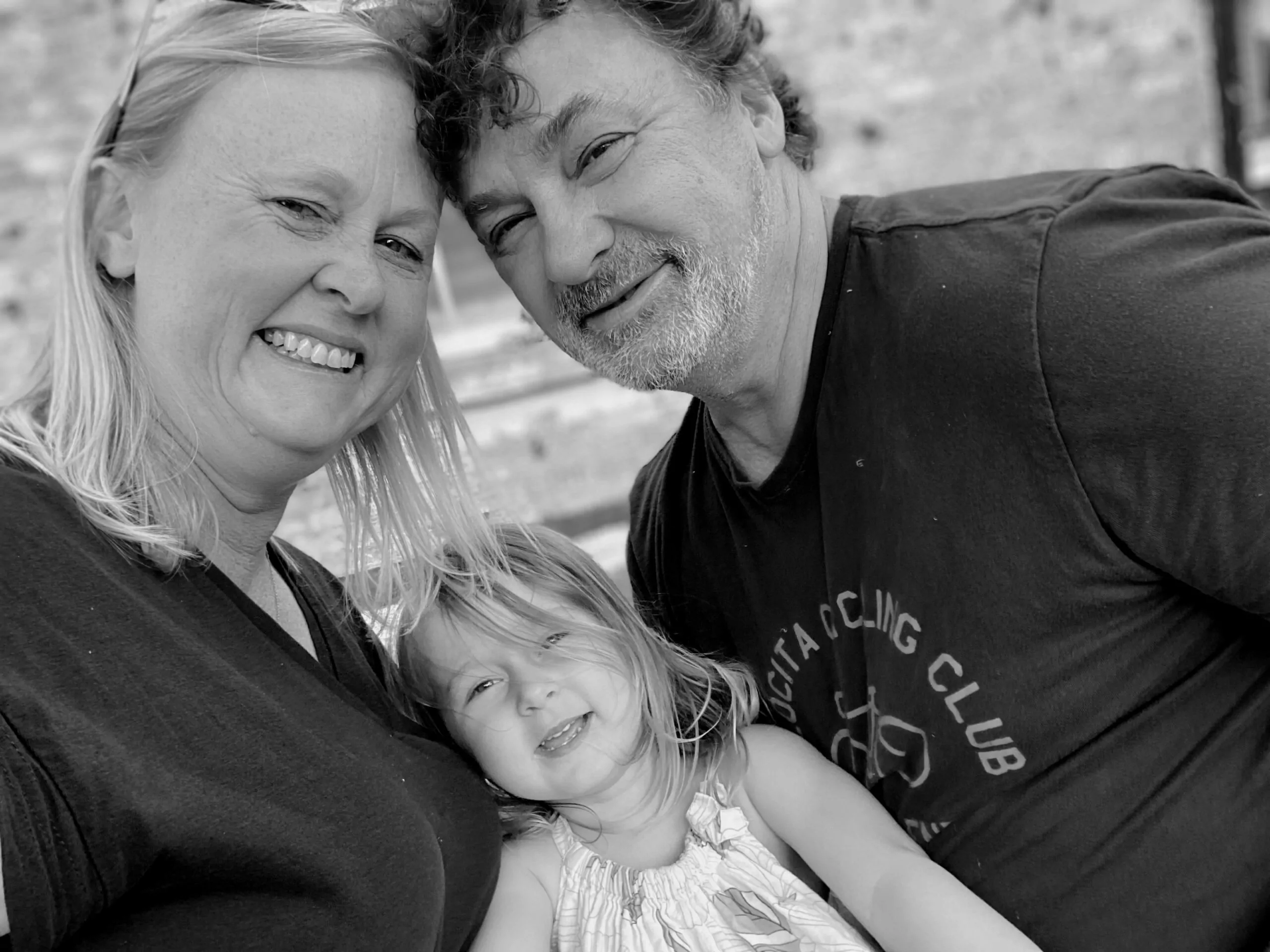
Vanessa Hall
Vanessa runs Abruzzo Farm, a charming 50-acre slice of heaven nestled in the hills of the Meander Valley. Her story began in 2019 with a spontaneous purchase that envisioned a quiet retirement haven for the not-too-distant future. However, life had different plans. What started as a retirement dream for her and partner Shane took a delightful detour into the world of newborns and navigating the challenges of a changing global landscape.
Amidst the unpredictability, and with a lot of help from the local farming community, she found her passion in working with the land, nurturing a calm and healthy environment for our livestock, and creating a wonderful home for their daughter.
Currently, the farm is home to cattle and sheep, breeds chosen for their compatibility with our terroir. While the farm may not be vast, it is a place where every animal is known by name, and every inch of soil is cherished. They have adopted practical regenerative techniques and are committed to ensuring a balance between their livestock and the native fauna needs. They admit to not being experts but are keen to learn and discover more about how tending to the soil as a living organism can support not only the health of our farm but also contribute to the broader ecological harmony of our surroundings.
Their overarching objective is to promote Tasmanian meat, not just to local communities but also beyond, showcasing the exceptional quality and ethical practices upheld by our community of farmers.
Vanessa will be taking part in the panel that looks at The Ultimate Juggle – Farming and Parenting.
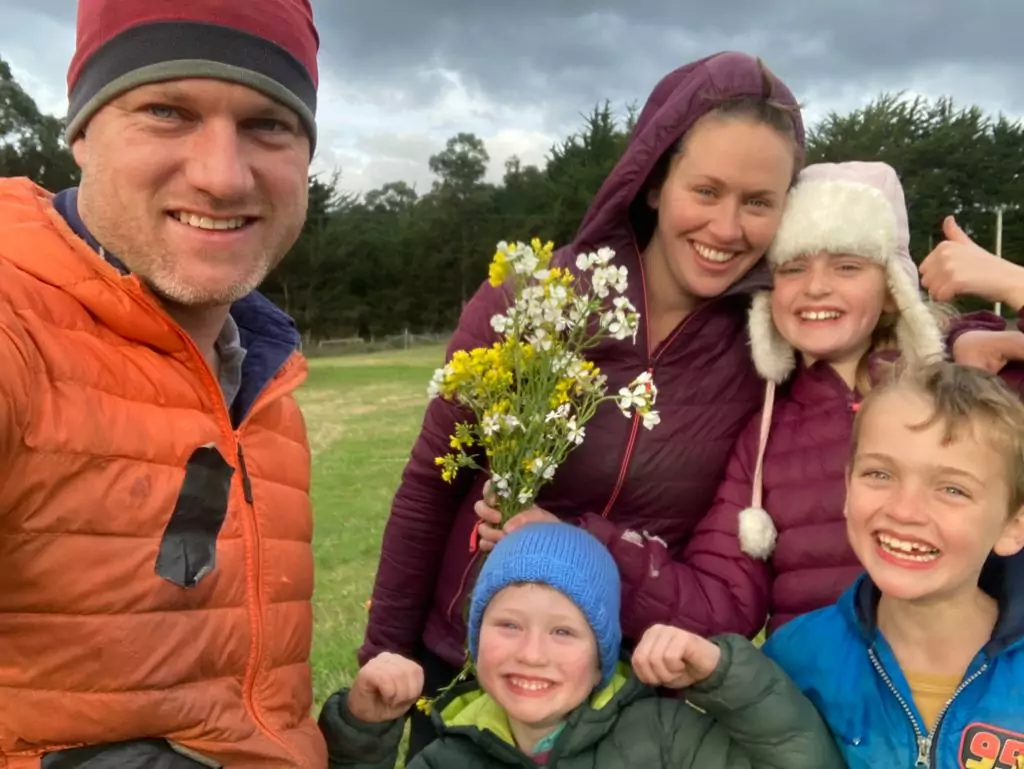
Thomas Botha
Thomas together with his wife Nanette run Appinoka Regenerative farming. Before arriving in Tasmania, they lived in countries where food is produced for the masses. Fresh produce often tasted like nothing and you couldn’t really blame children for not wanting to eat it. Their vision is to produce food that they and their children love to eat and to share it with those who want the same for their families. At the same time they continue to make conscious decisions to apply lean practices to their farm that will enable them to excel in farming practices, be more efficient, eliminate waste and produce good growth.
Thomas will be taking us through the journey of getting accreditation as an egg producer, in a presentation called Cracking The Code. With egg shortages, and long lead times for producers to become accredited, understanding what it takes to get an egg stamp has never been more important. Jen will join Thomas on stage, to discuss the steps it took for Appinoka to receive accreditation, and to look at whether more scale-based regulatory approaches are necessary.
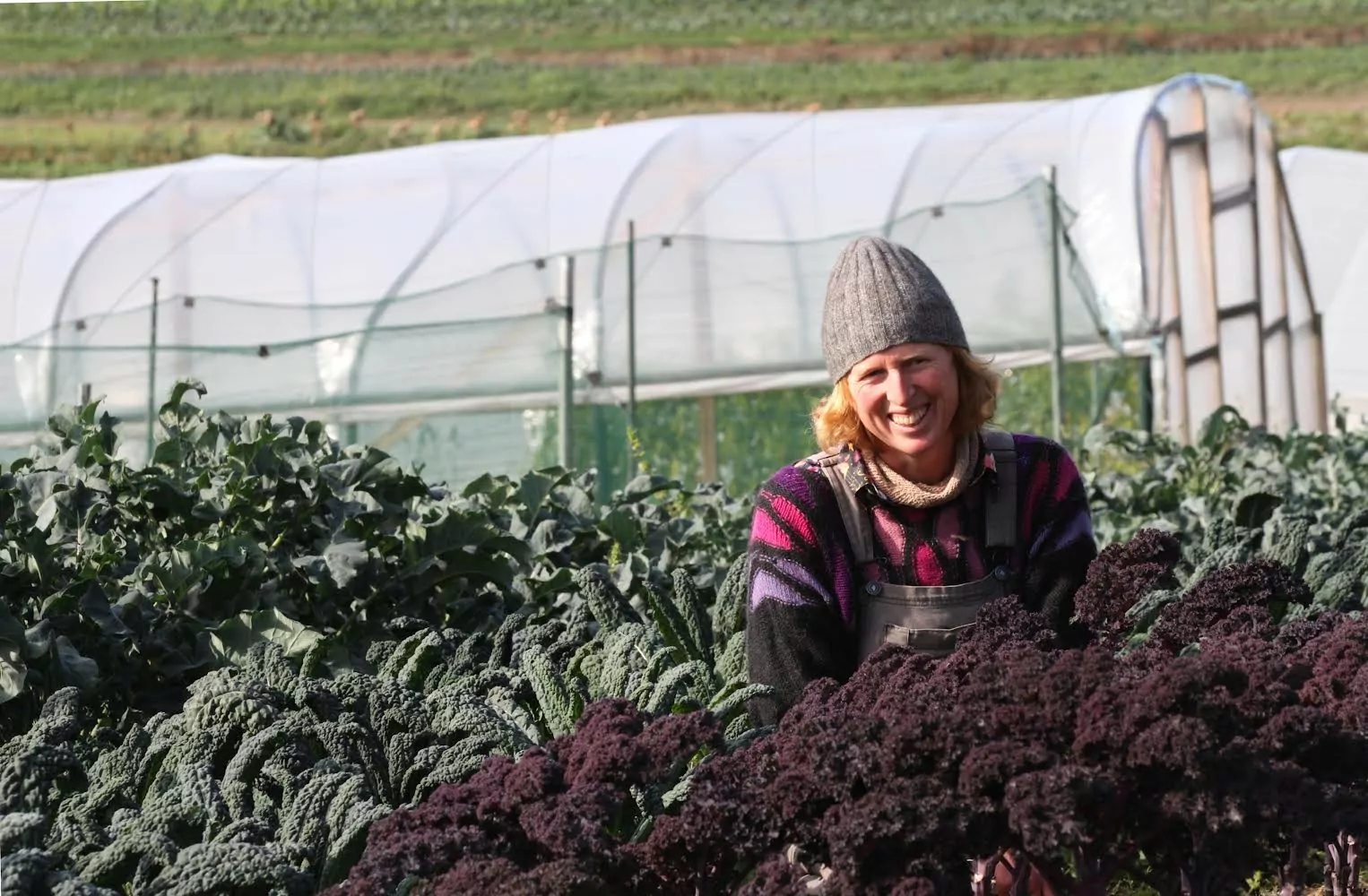
Sonja Ralph
Sonja’s eclectic work life has ranged from clinical embryology to field botany, catering to outdoor guiding. She’s currently splitting her time working with her husband on their small market garden, Constance Farm, while homeschooling their two children, working as ‘Grow and Learn’ program facilitator at Dodges Ferry Primary School and as a project officer for Landcare Tasmania.
Sonja will be taking part in the panel that looks at The Ultimate Juggle – Farming and Parenting.
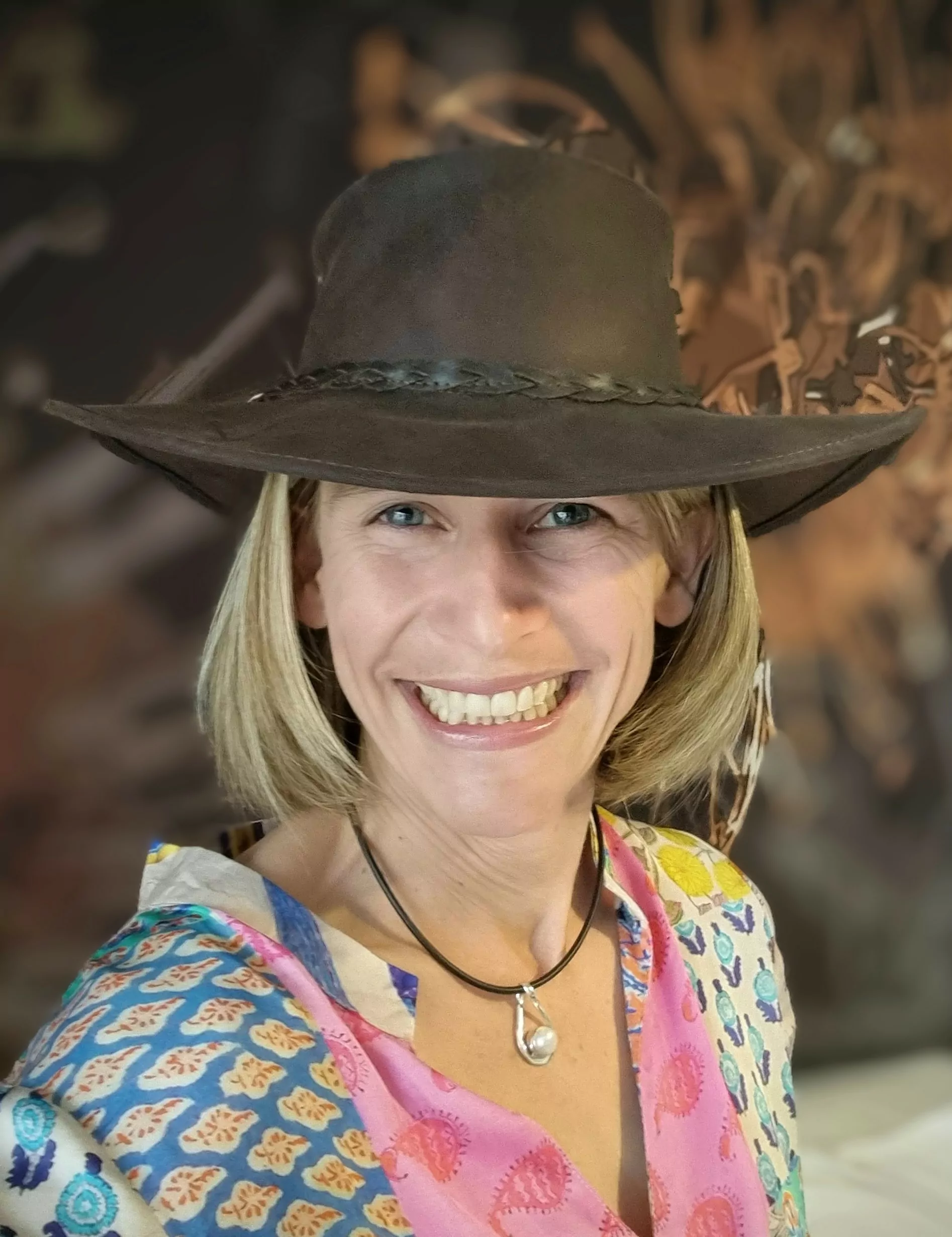
Felicity Richards
Felicity grew up on a livestock property on Flinders Island and now manages a beef enterprise spanning Wynyard, the Tamar Valley, and Flinders Island with her husband. After a decade working in policy and regulation following a law degree from ANU, she returned to farming in 2013. Alongside hands-on work with livestock, she leads areas of the family business including compliance, WHS, HR and biosecurity.
Felicity currently chairs the Tasmanian Biosecurity Advisory Committee, Farmsafe Australia, and the Tasmanian Livestock Processing Taskforce. She has helped develop animal welfare guidelines for Tasmanian meat processing and works closely with industry and government on safe, sustainable food systems. She’s passionate about clear communication, community engagement, and supporting practical, local solutions in agriculture.
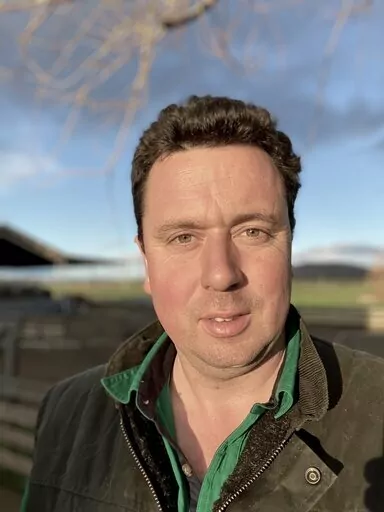
Will Bignell
Will is a seventh generation sheep and cropper from Thorpe Farm, Bothwell in Tasmania’s Highlands. An agricultural scientist by trade, Will has a PhD in improving omega 3 fats in sheep, runs a drone business, and is focused on promoting soil health using precision technology in agriculture. Will is a strong believer that farming has to increase yields while maintaining or improving land, all while making a decent living, and is passionate about the value of community and family in ag, helping run events that bring hope and support to farmers in his district.
At Cross Pollinate Will’s presentation will focus on the 80/20 rule, or Pareto Principle, unpacking it in the context of farming and demonstrating how to analyse your enterprise mix, time use, and income streams to focus on what really works. He’ll also explore the mental and emotional shift required to stop glorifying ‘busy’, and the tools he uses to carve out whitespace — the intentional blank space in a calendar that isn’t work.
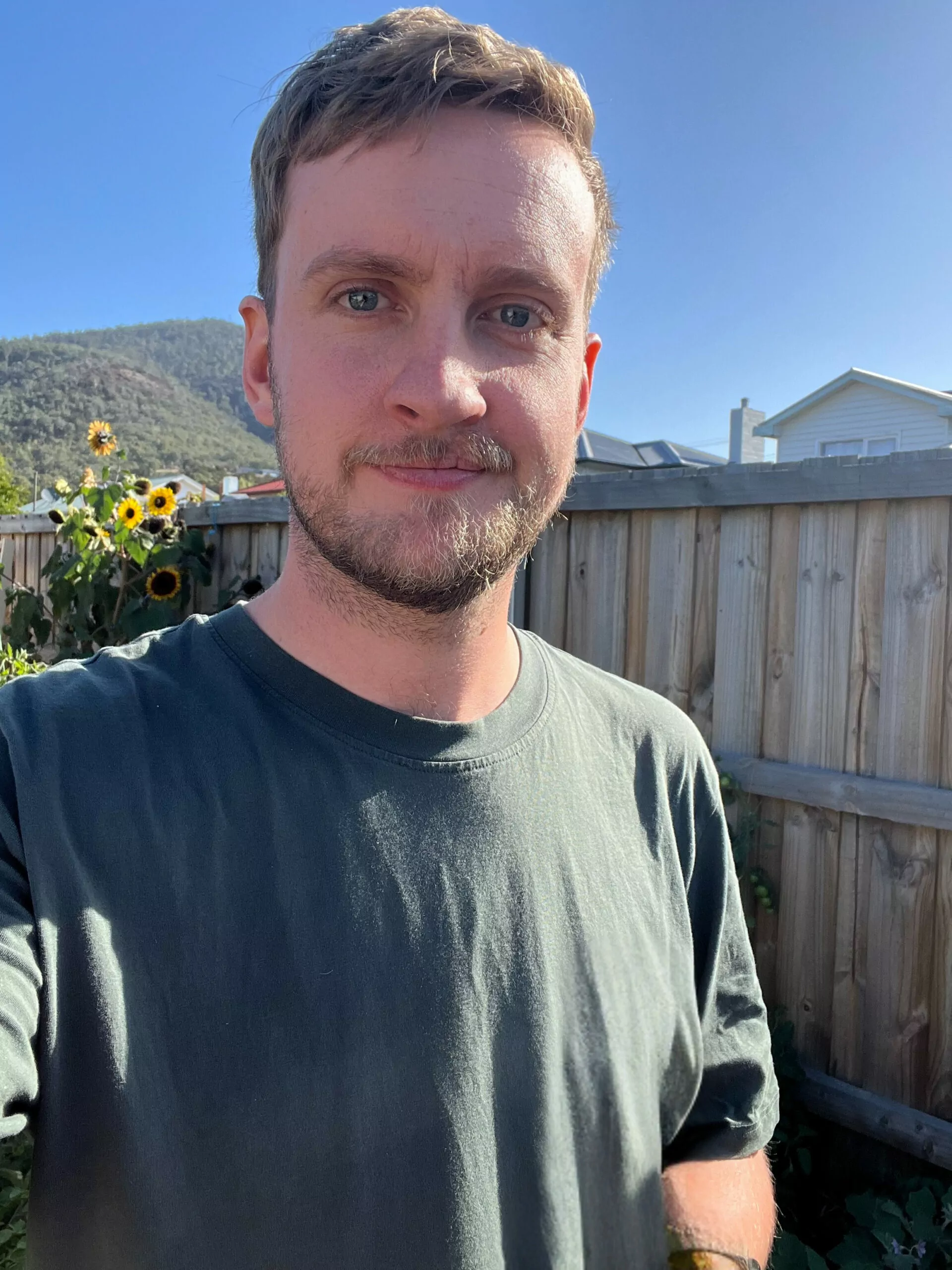
Calum jacobsen
Calum’s journey into farming began in the suburbs of Perth, where a love of growing things led him to complete a Permaculture Design Certificate just out of high school. Since then, his path has meandered between small-scale agriculture, hospitality, and business ownership — always driven by curiosity, community, and a willingness to dive into the unknown.
Before 2020, Calum and his partner Samara ran Broadchurch Farm in Tasmania’s Southern Midlands, raising pastured meat chickens, beef and heritage pork. Their chicken enterprise earned a State Delicious Good Food Award and a loyal customer base with consumers and chefs alike. His hands-on experience also spans work in abattoirs and butcher shops, shaping a strong understanding of Tasmania’s small-scale livestock sector. Like many others, COVID forced a major shift — and a pause on farm life.
Relocating to Brisbane, Calum went on to launch multiple hospitality ventures driven by a desire to contribute to the community. Now back in Tasmania with his young family, Calum is embracing the pace of parenting and backyard food growing, while looking for ways to contribute to the local food movement beyond the paddock.As part of the Sprout Tasmania team, he’s passionate about building connections, supporting producers, and helping shape a food system that works for people and the planet.
Calum will be bringing his experiences to the ‘Letting Go to Grow’ panel.
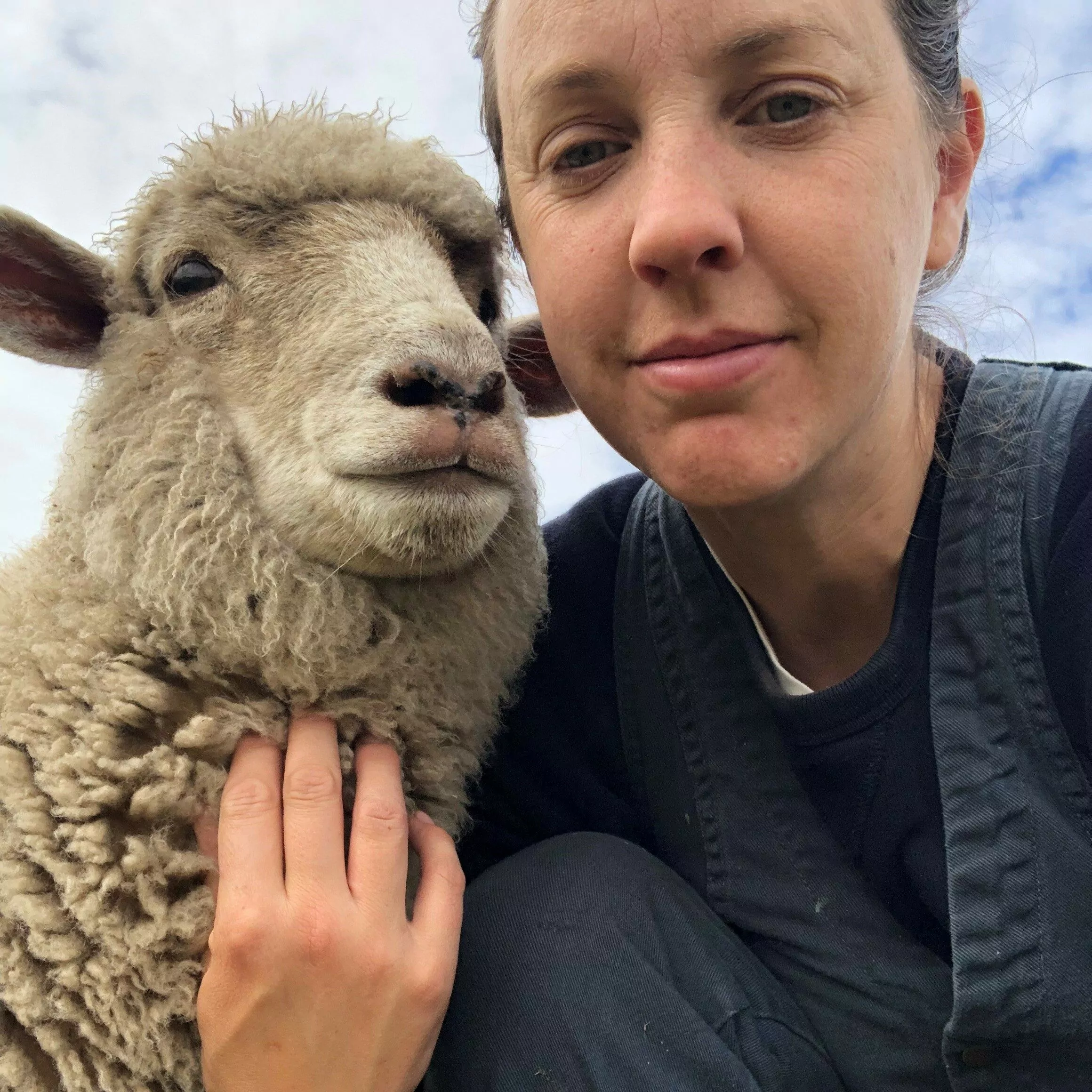
Emma Bowen
Emma Bowen is a farmer and permaculture designer with a background in permaculture, market gardening, urban farming, design and community engagement. She was co-founder and manager of Pocket City Farms, a quarter-acre urban farm in the centre of Sydney on a converted lawn bowls club, that provides organic produce, education and a place for connection to the local community. Emma’s passionate about the transformative power of farms and gardens and the immeasurable value they bring to our physical and mental well-being as individuals and communities.
Emma now lives in the Huon Valley with her partner Michael and two children on Rising Farm – a 50-acre former apple orchard in the Huon Valley. Emma is in the early stages of returning the farm to food production, developing a permaculture orchard with a primary crop of hazelnuts, building upon her passion for sustainable agriculture on a larger scale. Alongside her farm work she is also a permaculture garden designer and community project consultant at Yarrow.
Emma will be involved in the Letting Go To Grow panel discussion.
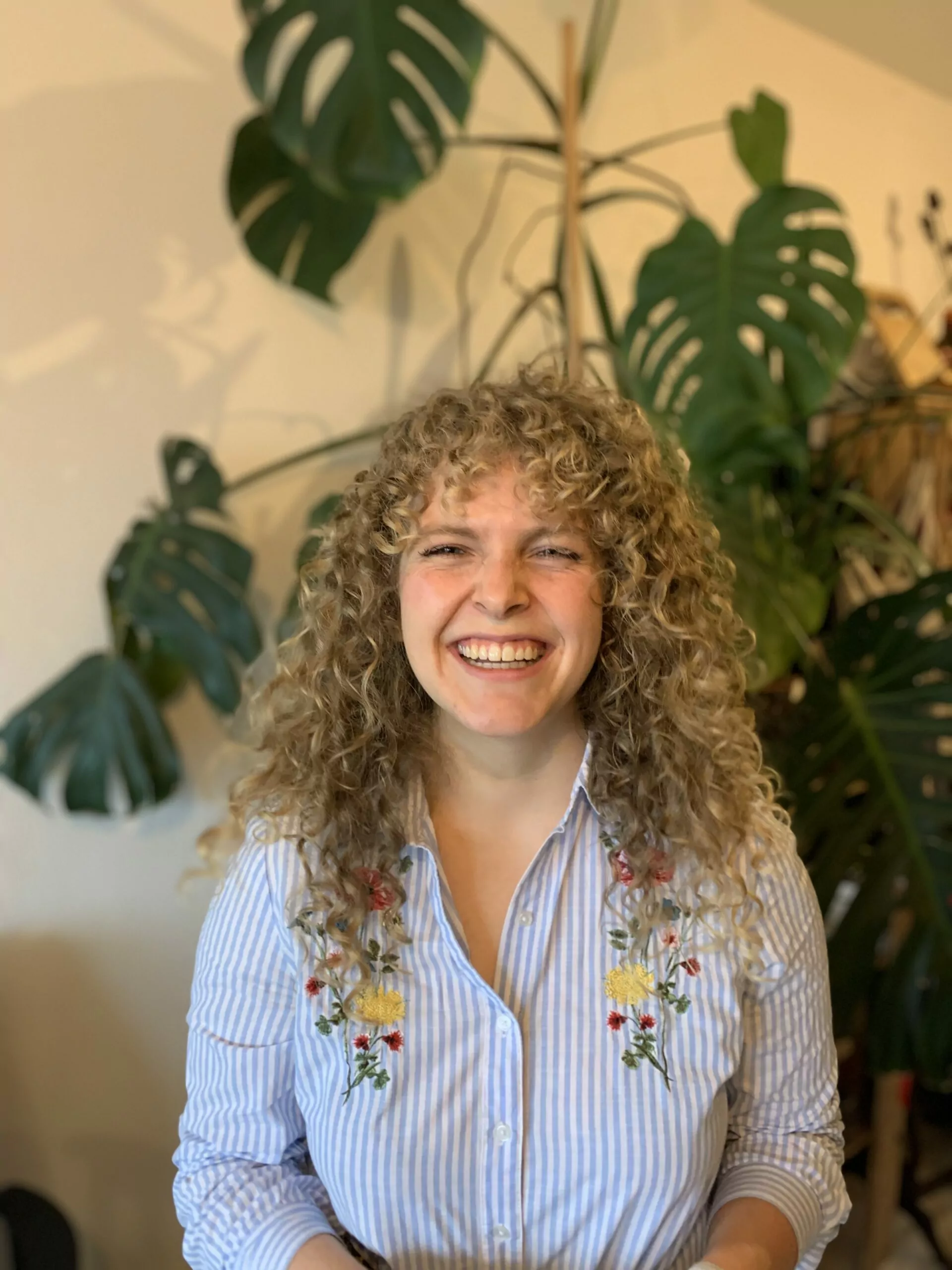
Janneke Scheeres
Janneke has a background in ecology, forest and nature management, and geo-information science, with a passion for exploring how farming and biodiversity can thrive together. Her research has taken her from Dutch farming landscapes, where she studied how to improve habitat for native bees, to a more technical 3D LiDAR dataset of the Brazilian Atlantic forest, to monitor forest recovery.
Now based in Southern Tasmania, Janneke works with NRM South to support landholders in managing landscapes that are both productive and rich in natural capital. She’s especially interested in increasing habitat for the small but mighty insects and animals that keep ecosystems ticking. Outside of work, she’s usually in the garden, out on a hike, or swimming in the Derwent—often pausing to admire a bug, bird, or flower along the way.
Janneke’s presentation is called Small Bugs, Big Impact, examining how biodiversity and insects are fundamental to long-term farm resilience. With practical steps to foster healthy populations of bees, birds, and bugs, and how to monitor and measure their impact, Janneke will demonstrate how a range of pollinators ensures stable crop production, and that rich biodiversity acts as a buffer against shocks, be it drought, flood, or disease pressure.
Panel discussions
Letting Go To Grow
Small-scale farmers are often emotionally, physically, and financially invested in what they do. But sometimes, the best thing for the person (or even the farm) is to shift direction. This session creates space for honest, reflective, and possibly cathartic storytelling.
Our panellists will explore the courage and clarity it takes to step back, pivot, or walk away from aspects of farm life that no longer align with personal wellbeing, values, or vision. It’s about reclaiming agency, not as a failure, but as an act of self-respect and evolution, and will prompt the audience to reflect on what they’re holding onto that no longer serves them.
The Ultimate Juggle – Parenting & Farming
Small-scale farming is not just a job—it’s a lifestyle. For farming parents, the boundaries between work, family, and self are porous at best. There’s immense beauty in raising kids close to the land, but also real challenges in balancing childcare, farm schedules, income pressures, and personal well-being.
This panel will see honest conversations on parenting while growing food and running a farm. We dig into the complex, messy, joyful, and often exhausting reality of raising children while running a small-scale farm. It’s not just about logistics—it’s about identity, relationships, safety, creativity, burnout, and resilience. It aims to normalise the chaos, celebrate the wins (big and small), and share the load through collective wisdom.
BOOK YOUR TICKETS AND GET YOUR NOTE PADS READY!
